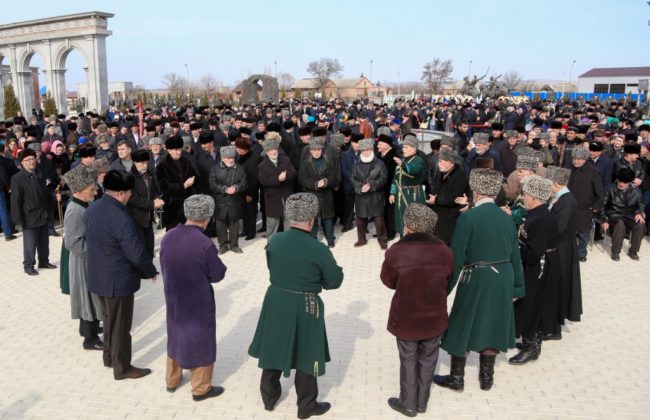

The 73rd anniversary of the deportation of the Vainakh (Chechen and Ingush) peoples on 23 February will be marked by more than 60 events and activities, the Ingush government has declared. The activities include round tables, exhibitions, and children’s drawing contests.
The main event will be held at the memorial building to the victims of Stalin’s repressions, not far from the Ingush city of Nazran. A rally dedicated to the deportation of the Ingush people in 1944 will be held there, which will include mourning events and distribution of ritual meat to the poor and orphans.
On the same day, Ingushetia will celebrate the Defender of the Fatherland Day, which is an official state holiday in Russia.
In the neighbouring republic of Chechnya, mourning events dedicated to the deportation will also be held, although on a much smaller scale than in Ingushetia. Similarly to previous years, local media outlets will publish memoirs of witnesses of the tragic events. Many people will hold small events themselves, regardless of the decision of the authorities. Almost in every village, people conduct joint Muslim rites, asking God for those who died during the expulsion to be granted a place in the afterlife.
In winter of 1944, by a secret decree of the Central Committee of the Soviet Union, Chechens and Ingush were expelled from their homeland, and the Chechen–Ingush Republic was abolished and renamed Grozny Oblast. The deportation was carried out on 23 February, on the Day of the Soviet Army and Fleet. In the course of a week, the entire population of Vainakh peoples (Chechens and Ingush), numbering around 700,000, was resettled in Kazakhstan and Kyrgyzstan, with no right to return. Almost a third of those deported died during the journey as a result of cold and hunger, as well as in the first years following the deportation.









